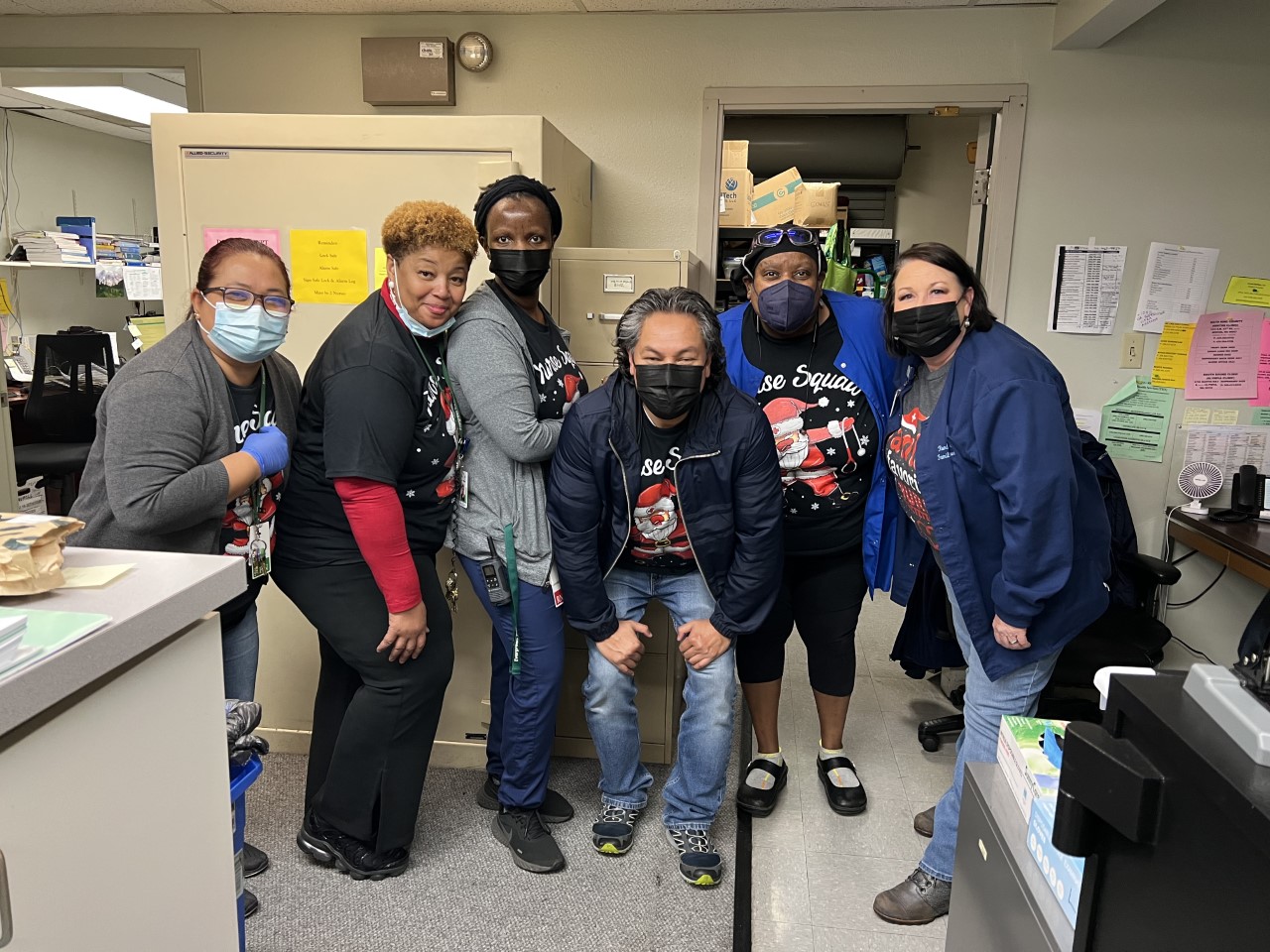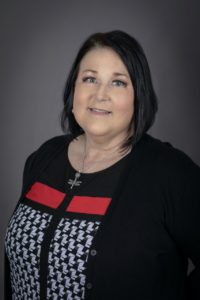
National Nurses Week, May 6-12, celebrates nurses and their tremendous work providing healthcare services to the people in need of care. Evergreen Treatment Services recognizes our substance use treatment is only possible through the dedication of our nurses. We sat down to speak with Ronda Wade, the director of nursing at ETS, to learn about her experiences as a nurse practitioner and advocate.

Could you tell me a bit about yourself and how you came to be a nurse?
I’ve been a nurse for 28 years, a nurse practitioner for nine of those years. I have a degree in business and was accepted into law school but realized that wasn’t what I wanted to do. I got my master’s degree in nursing, and it’s been a natural fit for me. I love being a nurse. I believe in nurses; I want to be a voice for them. I often feel like we’re not given the respect that we deserve when often we’re the ones keeping people alive.
What made you decide to work at ETS?
I’ve worked in primary care and pain management, and I wanted to do something different. I wanted to learn more about substance use; there wasn’t—and still isn’t—enough knowledge about it. We got into this opioid epidemic because of our lack of knowledge. For us to get out of it, we have to educate. But there’s such a stigma around opioid use, and educating has become harder due to the pandemic, since nursing students are no longer able to come to the clinic.
We have tried to protect our nurses throughout COVID-19. They are essential; if we have no nurses, we have no way to take care of the patients. But it’s also cheated the students from learning with our team. I’ve seen it in the almost four years I’ve been with ETS, where students begin digging and digging for more information. My goal in the next six months is to reach out to nursing schools and restart that education. Nothing is more rewarding than seeing students start learning and wanting to learn more about opioid use disorder.
What do you enjoy about the work you do?
I enjoy advocating for our nurses. I came here as a medical provider first, and I would go in the dispensary to talk to the nurses because they understand better than most what was going on with my patients because they see them every day. Then, I got to know the nurses and learned their supervisor had left. The nurses asked, “would you be our boss?” I thought, “well, I’m not going to be a boss, but I might be your leader.” That’s how I inadvertently got to where I am. It’s been an amazing opportunity. I’m blessed that ETS Medical Director Dr. Paul Grekin believed in me and has really supported me through this whole process. I have also had two amazing mentors on my journey through managing the dispensary. One is Micki Kedzierski, RPh, SUDP – she was our pharmacist – and Ron Giddings, PA-C who is one of our physician assistants and used to manage the dispensary when Methadone was compounded in the clinic.
How would you describe your approach to patient care and educating others on substance use treatment?
I always try to explain how we got to this epidemic in our country. From my experience in pain management, I know that providers are often instructed to use medications for treatment without knowing what was going to happen when patients used them. So, I talk about the medications and how they affect the body.
I have a degree in nursing education, so I always encourage my nurses to learn as much as they can. It is important they embrace learning to continue advancing and improving their nursing knowledge and skills. Many of our nurses attend classes for advanced degrees, which makes me proud of them. I push them to grow in uncomfortable spaces so they can move forward.
A patient I had years ago in hospice always told me when I would leave her house, “don’t forget, honey, every day is a school day!” I think about her every single day I come to work. I want my nurses to know every day is school a day – we’re always learning; we’re always evolving.
How do you define success in your line of work?
I measure success by my nurses wanting to come to work and wanting to be here. I want them to feel like they’re getting their cup filled up every day. So, I do a lot of little things for them. I make sure our dispensaries have coffee and special creamers for the nurses. I know that doesn’t seem like very much, but when you’re in a locked unit—dispensaries have to remained locked at all times as a stipulation of federal law—and you can’t come and go as you please, I think it’s important that if they want hot coffee, they can have hot coffee.
As nurses, we don’t take care of ourselves well. I believe this is a trait common to those drawn to the profession. Nurses take care of so many people and so many moving parts, but they forget that they are a person too. I’ve been at this for 28 years and just learning this myself.
What would you like people to know about the role of nurses in substance use treatment?
Nurses are a vital part of treatment. They are the people who see each patient every single day. They may be the only person that says, “Hey, how are you doing today? Are you OK? Do you need anything?” We also get notified if it’s a patient’s birthday and may be the only one who knows or recognizes the day. It’s amazing how important a “Happy birthday!” can feel. Nurses just know the patient on a different level. All their skills shine in those 2-5 minutes with them. Patients get to know them in turn and that builds trust. Nursing is a very trusted field—public opinion polling has ranked nurses the most honest and ethical profession for 20 years. Without nurses, patients would suffer.
What would you like people to know about Evergreen Treatment Services?
Evergreen Treatment Services has been in business for almost 50 years. We have people who have been working here for 40 years. We are truly invested in substance use treatment and outreach. We really want to help the patients, to give them the best care and the best opportunity to change their life and get on with their journey, whatever that may be.
I love working for ETS. I really do. It can be difficult. Every job can be difficult, but the fact is that those who work here are really doing it for the patients we serve. We were here every day, throughout the pandemic, to take care of our patients. Nurses have been Rooted in the Strength that has gotten our country through this pandemic. My hope is this country and the world has learned how important nurses are to making a difference.




